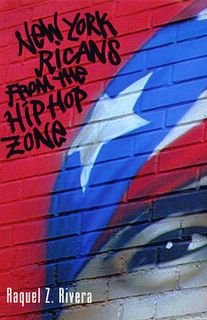HIP HOP (Feminism) 101: Class is Now in Session

Originators, Pioneers and Foremothers/Forefathers...RESPECT!
HIP HOP (FEMINISM) 101 Hip Hop is a culture, born on the East Coast of the United States circa 1968; with roots in Jamaica, the Caribbean, and Africa that date back before history. Rap music, the “pop” music form of Hip Hop music, began commercially in 1979 when Sylvia Robinson of SugarHill Records put together a slap-dash group of rappers to make the group The Sugarhill Gang. They recorded a track called “Rappers Delight,” biting rhymes from original pioneer MCs like Grandmaster Caz and other foundational MCs. Thus, commercial Rap music was born.
But there’s much more to it than that. Hip Hop culture manifests in myriad forms and activities – primarily Breakdancing, Graffiti Art, DJing/Turntablism and MCing/Rhyming – as well as Beatboxing and Afrika Bambaataa of the Universal Zulu Nation’s “fifth element” of Hip Hop, Knowledge. So to speak on knowledge, one of the questions I’m often asked on panels and discussions is this – Is Hip Hop a Black culture, is it a Black art form?
There are a lot of underlying issues within the roots and foundation of Hip Hop culture and music. Hip Hop and it’s art forms were born in the slums, birthed from the youth and the have-nots who needed and wanted to represent themselves in an original, fresh way. And while African-American men comprise the majority of the pioneers of Hip Hop, it must be stated that MANY women were also pioneers including Lisa Lee, Pebblee Poo, Lady B (Philadelphia), The Mercedes Ladies, Shaka Zulu Queens, Sparky D, Tonya Winley & Sweet Tee, Lady Pink, Eva 62, Barbara 62, DJ Wanda Dee, DJ Jazzy Joyce, B-Girl Baby Love, B-Girl Headspin Janet, B-Girl Sista Boo, and many others. And while Puerto Ricans, Cubans, Dominicans, Bajans, Jamaicans, and many other Caribbean born émigrés were part of the first wave of Hip Hop culture, and they do retain much of their own cultural identities from their native lands, each of these groups has their roots in the African diaspora.
And on the other hand, this culture is an American culture, the daughter of Jazz – and save it’s mother, the only American cultural form of music that has spread around the globe and affected every nation on this planet. There are many books on the art forms, and one of the best is New York Ricans from the Hip Hop Zone, by Raquel Rivera. I recommend that those new to the culture or just beginning to study Hip Hop literature read New York Ricans first, because it is one of the few books that directly speaks to the pioneers of Hip Hop who didn’t identify as “Black” but as Puerto Ricans, Cubans, and Dominicans with their roots in Africa. Another important book to start with is Vibe’s Hip Hop Divas, paying particular attention to two of the articles by Hip Hop “herstorian” Cristina “Dulce” Veran. Her pieces on the wax/discography of Women in Hip Hop, as well as her Women in Hip Hop timeline; are fundamental reading for anyone wishing to getting an education and moving on to Hip Hop 202.
I recommend all of the below-linked books because they are written by women and people of various races/nationalities. It’s important to saturate your mind with images and historical representations of the whole picture – and to avoid reading/studying materials prepared by and for (but not about) white men attempting to tell the greatest stories never told. It’s fine to read their books as well, just as it’s fine to listen to Eminem – but only after you’ve studied the greats and listened to the originators. I’ll be back with another lesson focused on the music, but for now, delve into some of these texts to learn more about Hip Hop, the richest culture every born in the United States.
One Love,
Miranda Jane
New York Ricans in the Hip Hop Zone by Raquel Rivera
Vibe’s Hip Hop Divas
Can't Stop, Won't Stop by Jeff Chang
Check It While I Wreck It: Black Womanhood, Hip-Hop Culture, and the Public Sphere by Gwendolyn D. Pough
When Chickenheads Come Home to Roost: My Life as a Hip Hop Feminist by Joan Morgan
Stand and Deliver: Political Activism, Leadership, and Hip Hop Culture by Yvonne Bynoe
Rap Music And Street Consciousness (Music in American Life) by Cheryl Keyes
Ladies First: Revelations of a Strong Woman by Queen Latifah
The Political Action Handbook: A How-To Guide for the Hip Hop Generation by Maya Rockeymoore
Word: Rap, Politics and Feminism by Adrienne Anderson
Black Noise: Rap Music and Black Culture in Contemporary America (Music/Culture) by Tricia Rose


1 Comments:
Thank U Hash. I'm moving on to another post about men in the struggle very soon. Check this one too Yo, When Men Are Feminists?
I'll also be compiling a larger post for Blog Critics which will include ALL of the discussions online and within blogs/comments circling in everything from FHHC, Essence/Spelman, B-Girl Be, etc.
1
MJ
Post a Comment
<< Home